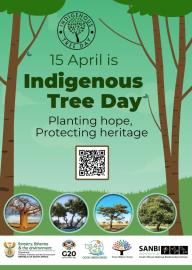
BRAZZAVILLE, July 9 (NNN-AGENCIES) — Covid-19 infections in Africa surpassed 500,000, and there is concern as a growing number of countries are experiencing a sharp rise in cases.
So far, in less than five months, the virus has claimed 11,959 lives, overtaking the 11,308 lives lost in the world’s worst Ebola outbreak in West Africa between 2014 and 2016.
Cases have more than doubled in 22 countries in the region over the past month. Nearly two-thirds of countries are experiencing community transmission. Algeria, Egypt, Ghana, Nigeria and South Africa account for about 42% of COVID-19 cases. South Africa alone accounts for 29% of the continent’s total cases.
However, the accelerating growth trend is not uniform across the continent, with some countries recording a steady rise in cases, indicating a protracted pandemic. Eritrea, Gambia, Mali, Seychelles and Togo are witnessing long doubling times and low growth rates.
Seychelles had not experienced a case in nearly two months, but in the past week had dozens of new imported cases, linked to crew members of an international fishing vessel. There are also some signs of progress as 10 countries have experienced a downward trend over the past month. Although Egypt accounts for 15 percent of cumulative cases, it has seen a decline in the past week.
“With more than a third of countries in Africa doubling their cases over the past month, the threat of COVID-19 overwhelming fragile health systems on the continent is escalating,” said Dr Matshidiso Moeti, World Health Organization (WHO) Director for Africa.
“So far the continent has avoided disaster and if countries continue to strengthen key public health measures such as testing, tracing contacts and isolating cases, we can slow down the spread of the virus to a manageable level.”
Eighty-eight per cent of COVID-19 infections are among people aged 60 and below, likely due to Africa’s relatively young population. However, the likelihood of dying from COVID-19 rises with increasing age and the existence of co-morbidities, with the risk of death among patients aged 60 years and above being 10 times higher compared with those below 60.
“Communities across the continent have a crucial role to play in controlling the pandemic, especially as countries begin easing lockdowns and opening up their borders,” said Dr Ahmed Al-Mandhari, WHO Director for the Eastern Mediterranean.
“As governments continue to implement public health measures, individuals must remain as cautious and vigilant as ever to protect themselves, their families, and their communities. Hand washing, mask use, physical distancing and other preventative measures are key to controlling transmission, saving lives, and ensuring that already overwhelmed health systems are not stretched to breaking point.”
As COVID-19 continues to spread, thousands of health workers have also fallen ill. Equipping and protecting health workers is one of the central pillars of the COVID-19 response.
WHO is working to support countries respond to COVID-19 by providing technical guidance, crucial medical equipment and has remotely trained more than 25,000 health workers.
WHO has also organized more than 420 shipments of key equipment, including more than 3,000 oxygen concentrators, 23,000 GeneXpert diagnostic testing machines and almost 4 million pieces of personal protective equipment for health care workers. — NNN-AGENCIES






